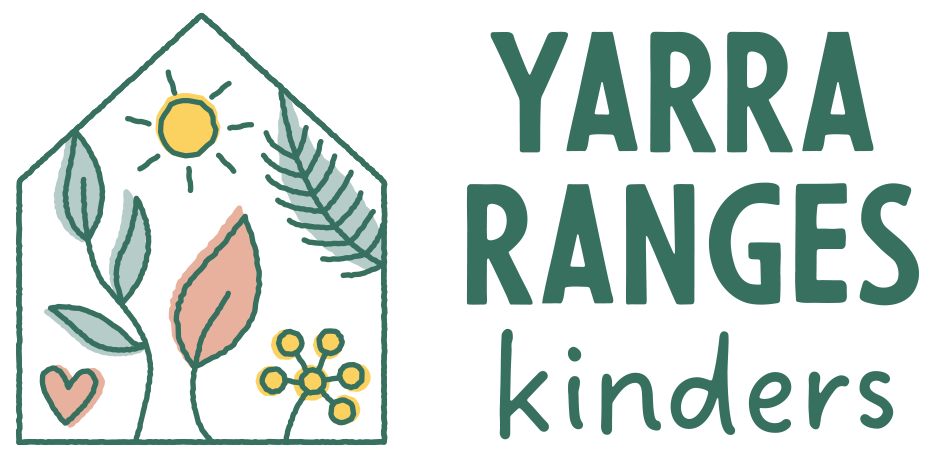
FAQ
-
Research shows that play-based learning is a powerful way to support children’s development. These benefits last into the school years and beyond.
The evidence also shows that two years are better than one when it comes to early learning.
A quality kindergarten program will have more of an impact for children who start at age three rather than four. The benefits are even greater for children who are in vulnerable circumstances.
Children are given the opportunity to use their imagination and practice important skills, such as problem solving, through play-based learning.
Children start to learn literacy, numeracy and language skills at kindergarten. They also learn how to get along with others, share, listen, and focus their attention.
Teachers and educators help children become curious, creative, and confident about learning. Often, they will introduce a play-experience, idea or topic and let children lead their own learning through exploration and experimentation.
-
Yes, your child may be eligible to repeat 3-year-old kinder.
There are guidelines that kindergarten and Pre-Prep teachers must follow to assess your child’s eligibility for an additional year of kindergarten or Pre-Prep. These guidelines help the teacher identify your child's learning needs and goals.
The learning and development areas assessed by kindergarten and Pre-Prep teachers include:
children have a strong sense of identity
children are connected with and contribute to their world
children have a strong sense of wellbeing
children are confident and involved learners
children are effective communicators
other factors may also be considered.
-
A second year of funded Four-Year-Old Kindergarten may be considered when a child shows delays in learning and development outcome areas in the Victorian Early Years Learning and Development Framework, and when:
the kindergarten program is deemed to be the most appropriate learning program
the child will achieve better outcomes at kindergarten than if they go to school.
In considering which educational learning environment will best support a child’s learning and development it is important that families visit and talk with the principal at the school they intend their child to go to during Term Two or Term Three to find about the school program and the types of support available for their child in Foundation.
-
Families with children born between January and April can choose which year to start Three- Year-Old kindergarten. These children can start in the same year they turn three, or in the year they turn four years of age.
To confirm when your child can start Kinder, please use the Department Of Educations Starting Age Calculator https://www.vic.gov.au/sending-child-kinder
When your child starts at kindergarten directly relates to the age they will start at primary school. If you’re unsure, you can get in touch with us at enrol@yrkinders.com
-
Kinder is fully funded by the Victorian Government, meaning there are no fees for you to pay other than the YRK application fee) for your child to attend Kinder.
-
No. A child can only be enrolled to receive kindergarten funding at one kindergarten service.
-
You can apply for kinder any time after your child is born. We process all applications and generate timetables by June each year to set up groups and times for the next kinder year.
To give you the best chance of receiving your first kinder preference, please apply as early as possible in the year before you would like your child to attend kinder.
-
Complete and submit an application form via this website.
Pay the application fee.
Once Yarra Ranges Kinders has allocated places, we will contact you via email if we are able to send you a Letter of Offer .
You will need to respond to the Letter of Offer by accepting or declining. If you accept your place, you will be provided with further documentation to complete
You will then be invited to attend a Family Information Evening.
-
Once your application has been submitted, the YRK Enrolments Team will email you when your application has been processed and your child has been placed on the waitlist of your preferred Kinder.
-
Once we have finalised enrolment numbers, usually around mid year, we will be in contact via email if we are able to offer your child a place at Kinder. The YRK Enrolments Team endeavours to start sending our First Round offers by August each year.
-
The family information evening is an opportunity to get to know your kinder teachers and learn how kinder works. It’s a really nice opportunity to meet staff and other families and find out what each day will be like for your child at kinder.
-
Under the Public Health and Wellbeing Act 2008, an early childhood service may not confirm the enrolment of a child unless it has certification the child is age-appropriately immunised or has an approved exemption.
Under ‘No Jab, No Play’ legislation, before enrolling a child, early childhood services will have to first obtain evidence that the child is:
Fully immunised for their age OR
On a vaccination catch-up program OR
Unable to be fully immunised for medical reasons.
To read more about the No Jab, No Play legislation, visit: health.vic.gov.au/immunisation/no-jab-no-play
-
Medication
If your child requires medication during the session, please fill out the medication form through the OWNA App and inform the staff upon arrival at kinder. Alternatively talk to the staff at kinder and they can help you complete the medication record.No medication can be given to your child without your written authorisation. Prescribed medication will only be given if prescribed in that child’s name. All medication must be brought to the kinder in the original bottle, with the name of the child clearly displayed, the dosage and frequency of administration.
All medication (including asthma medication) must be handed directly to staff and NEVER left in a child’s bag.
Allergies
While you are completing your Confidential Enrolment Form in OWNA, you will notice that we ask you about your child allergy/anaphylaxis/asthma and general medical conditions. If your child has a diagnosed allergy, a coloured ASCIA plan will need to be prepared by your GP or Paediatrician and then attached to the enrolment form.The kindergarten teacher will then organise some time with you to prepare a Risk Minimization Plan and a Communication plan so that everyone involved in the care of your child is informed and aware of medical conditions.
If your doctor has prescribed any medication for your child (ex. Zertech, Epipen, Ventolin etc), the medication
MUST be:
In its original container, including the box
Have a label printed by the Pharmacy with the name and surname of your child, DOB and dosage to be administered
Within expiry date.
Medications should be kept at kinder, as your child won’t be able to attend kinder if his/her prescribed medication is not on premises. Your teacher will guide through this process.
Anaphylaxis
Anaphylaxis is a severe, life-threatening allergic reaction that occurs when a person is exposed to an allergen (an allergy-causing substance). The most common causes in young children are eggs, peanuts, tree nuts, cow’s milk, bee or other insect stings, and some medications. Please be aware that it is very difficult to eliminate all allergens from a kindergarten environment, so we work with children and families to minimise risk and educate children on appropriate allergy management. This includes not sharing snacks or lunches, open communication about allergies and how we minimise the risk, and keeping children’s medications (for example EpiPens) on site should they be required. -
Children can attend a Three-Year-Old Kindergarten program at either a long day care (childcare) centre or at a standalone (sessional) kindergarten. These services are also likely to offer a Four-Year-Old Kindergarten program.
At a standalone service, a kindergarten program will only operate on certain days and at specific times. These days and hours are set by the kindergarten service.
No matter where your child goes to kindergarten, teachers and trained educators will lead the program.
-
No. In Victoria, the terms “kindergarten” and “preschool” are used interchangeably to refer to the year(s) your child attends an approved program before starting primary school.
